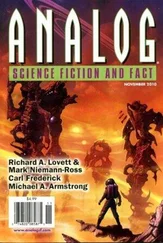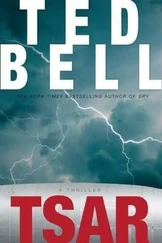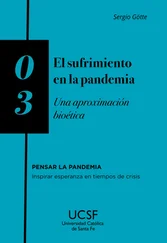Ted Bell - Phantom
Здесь есть возможность читать онлайн «Ted Bell - Phantom» весь текст электронной книги совершенно бесплатно (целиком полную версию без сокращений). В некоторых случаях можно слушать аудио, скачать через торрент в формате fb2 и присутствует краткое содержание. Жанр: Триллер, на английском языке. Описание произведения, (предисловие) а так же отзывы посетителей доступны на портале библиотеки ЛибКат.
- Название:Phantom
- Автор:
- Жанр:
- Год:неизвестен
- ISBN:нет данных
- Рейтинг книги:3 / 5. Голосов: 1
-
Избранное:Добавить в избранное
- Отзывы:
-
Ваша оценка:
- 60
- 1
- 2
- 3
- 4
- 5
Phantom: краткое содержание, описание и аннотация
Предлагаем к чтению аннотацию, описание, краткое содержание или предисловие (зависит от того, что написал сам автор книги «Phantom»). Если вы не нашли необходимую информацию о книге — напишите в комментариях, мы постараемся отыскать её.
Phantom — читать онлайн бесплатно полную книгу (весь текст) целиком
Ниже представлен текст книги, разбитый по страницам. Система сохранения места последней прочитанной страницы, позволяет с удобством читать онлайн бесплатно книгу «Phantom», без необходимости каждый раз заново искать на чём Вы остановились. Поставьте закладку, и сможете в любой момент перейти на страницу, на которой закончили чтение.
Интервал:
Закладка:
“Why not?”
“Most of them are too bloody stupid to get out of their own way. They can blow themselves to hell in a mosque or plan and execute an attack like the one on Mumbai, yes. But something like this? No, I think our culprit is a nation-state with enormous resources and limitless intellectual horsepower to create some kind of AI machine. In fact, I’m quite sure of it.”
“Brick Kelly said as much. All the usual suspects fall into the latter category. We can safely eliminate Cuba, Venezuela, Yemen, and Syria. Now that Colonel Ghaddafi is no longer with us, we remove Libya from the list. And now, Russia, based on what I’ve just told you. That leaves us with China and North Korea. The only two adversaries who might possess the resources sufficient to develop the sophisticated technology to launch a true cyberwar.”
“What about Iran?” Congreve said. “God knows they’ve got money and scientific resources.”
“Maybe. But current MI6 intel indicates they’re pouring all their money and energy into their sabotaged nuclear weapons program, developing long-range missiles, and launching spy satellites. Whoever is behind these cyberattacks has spent hundreds of millions, and many years, to get to this level of… I don’t even know what to call it
… invasive systems control, for lack of anything better.”
“Hmm. And these scientists seem to have leapfrogged the entire world of artificial intelligence in a single bound. So the logical question is how? The brainpower and technology necessary to take total control of a jet fighter in midflight doing six hundred miles per hour is staggering.”
“And what about these UFOs hovering over the USAF installation in Fort Greely, Alaska? Moments before those ABMs exploded in their silos, radar clocked them at speeds approaching the speed of light. Not to mention the ability to stop on a dime and hover directly overhead. What the hell is that all about?”
“I’ve got one word for you, m’lord.”
“Fire when ready.”
“Aliens,” Ambrose deadpanned.
“You know, given the present insanity, I could almost buy that. But angry aliens who wreak their high-tech wrath solely upon the Americans? Bit of a stretch, Constable.”
“I was joking, Alex.”
“So was I, Ambrose.”
“So where does this all leave us?”
“Completely in the dark?”
“Precisely. Shall we go in to dinner? I believe there are candles. Perhaps we’ll find a modicum of illumination there.”
A fter dinner, Alex Hawke climbed the wide staircase to the third floor to say good night to his son. Since he’d arrived so late, Ambrose and Diana had suggested he spend tonight at Brixden House and return home next morning after a hearty breakfast. Hawke agreed and was glad he’d done so. He and Ambrose might not have any answers, but he felt sure they were at the very least asking the right questions. Which, as Congreve had said, was more than half the battle.
He saw a half-opened door down the corridor, yellow light spilling out onto the ancient Persian carpets. He approached slowly and peeked inside, not wishing to startle anyone. Alexei was already tucked into bed. Miss Spooner, her shadow looming on the wall beside the bed, was sitting by his bedside, her head bowed. She was reading to him from a large picture book, gently turning the pages and speaking barely above a whisper, her luxuriant hair of uproarious gold gleaming in the lamplight.
He was about to enter, his hand against the door, and then paused and regarded the little scene before him. It was one of almost overwhelming sweetness and purity. These are the moments to treasure, he thought. These rare, quiet moments of peace and serenity, one’s own innocent child lost in the dreams of some fairy tale… transported by the words of a beautiful woman…
The door creaked.
She turned to look at him over her shoulder with a gesture so rapid it didn’t give him time to escape.
“Oh, excuse me,” he managed, his heart in his mouth, as embarrassed as a naughty schoolboy caught peeking at something he shouldn’t.
She smiled, turning toward him with the grace of a gazelle. The whole room felt saturated with intimacy, now destroyed by the blundering trespasser.
“He’s fast asleep,” she whispered. “Do you wish to kiss him good night?”
“Yes, yes, I would like that very much, thank you.”
He crossed the room and bent to kiss his son, his warm, sleepy scent almost overpowering.
He stood and looked down at her for the briefest moment. “Good night, Miss Spooner.”
“Good night, sir,” she said, and he felt her eyes lingering upon him for just a fraction of a second too long before he turned abruptly and left the room.
Twenty-seven
Tehran
Tehran was dead still, at least inside the baking grounds of the presidential palace. It was as though the hot day lay there out of breath. Darius had returned to the palace before-many times, in fact. He still relished the irony that this fine piece of architecture had once been called the “White House.” The Shah’s sister had lived here in splendor and luxury for many years. She had an adopted son, given up at birth by his natural mother because of his deformity.
That child’s name was Darius. The Shah had been his benevolent uncle. This house had been his boyhood home. These grassy lawns and leafy trees had once been his playground.
Then the Ayatollah Khomeini arrived and the Shah’s fate, and the nation’s, were sealed. Freedom collapsed under a tyranny of lies and mass executions. It still lay there, restive, seething, trampled beneath the feet of the mullahs who ruled through fear disguised as religion.
His adoptive mother fled to America, taking all her real children, her vast amounts of treasure, gold, and jewels. But she did not take Darius to America. The cripple with the withered legs who was nothing but a bother. Would never amount to anything. Was an embarrassment.
After the Revolution, his home had become a museum. Now it was home to the Iranian president, a man whom Darius had come to tolerate, but also distrust and dislike. He hated the fact that this pompous theocrat, this strutting tyrant, now reigned in the lovely house where all of his boyhood dreams had been crushed. The house from which he’d been carried bodily and thrown to the wolves who stalked the city of his birth.
Alas, the president was a powerful ally in Tehran and thus had to be courted. He was useful, too, since the ayatollah had given him another vote of confidence after the recent election. As long as Darius visited the capital frequently and gave the powers that be extensive updates on his progress in the Perseus Project, they left him mercifully alone.
The door to the white van was opened by his driver, and his chair was lowered to the pavement on a hydraulic platform. The two Revolutionary Guards standing on either side of the door didn’t even find him worthy of a glance, but he could see they were fascinated by his flying chair. The double doors were opened from within, and he zoomed inside the cavernous entry hall.
The president received him in a gilded drawing room that had remained untouched since the Shah’s sister’s departure. The furniture, the carpets, even the chinaware and silver tea service were the same. Darius was often served tea in a cup recognizable by the chipped handle, a cup he himself had broken as a child.
A tall, heavily muscled man, who was introduced only as the president’s military attache, was standing nearby, uninterested, his back against the wall, clearly a personal bodyguard.
The president was a small man whose teeth were big and white and separate, like tombstones designed for a much larger cemetery. He wore very thick reading glasses that made his eyes look like broken chips of quartz. His false joviality, even his scruffy little beard, made Darius want to grind his teeth. The large silk brocade armchair he had chosen for his throne made him look like an aging gnome whose tiny feet didn’t even reach the floor.
Читать дальшеИнтервал:
Закладка:
Похожие книги на «Phantom»
Представляем Вашему вниманию похожие книги на «Phantom» списком для выбора. Мы отобрали схожую по названию и смыслу литературу в надежде предоставить читателям больше вариантов отыскать новые, интересные, ещё непрочитанные произведения.
Обсуждение, отзывы о книге «Phantom» и просто собственные мнения читателей. Оставьте ваши комментарии, напишите, что Вы думаете о произведении, его смысле или главных героях. Укажите что конкретно понравилось, а что нет, и почему Вы так считаете.












